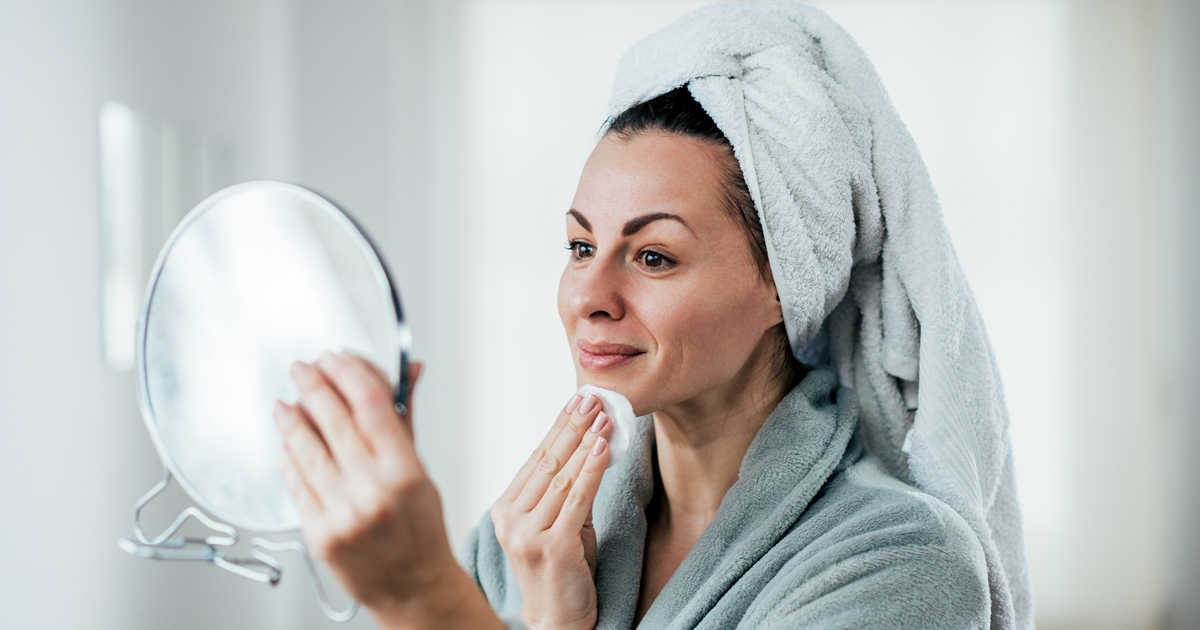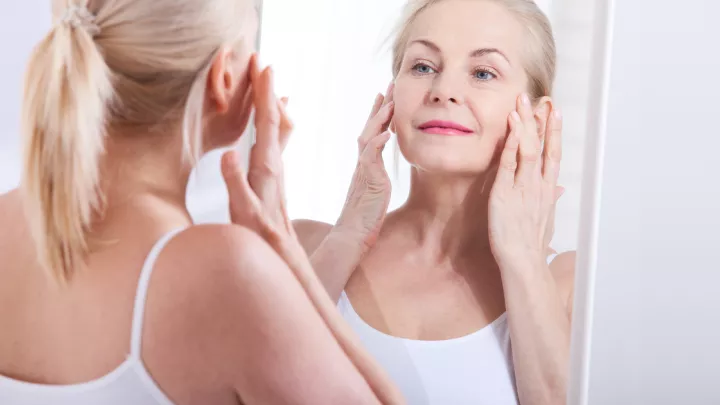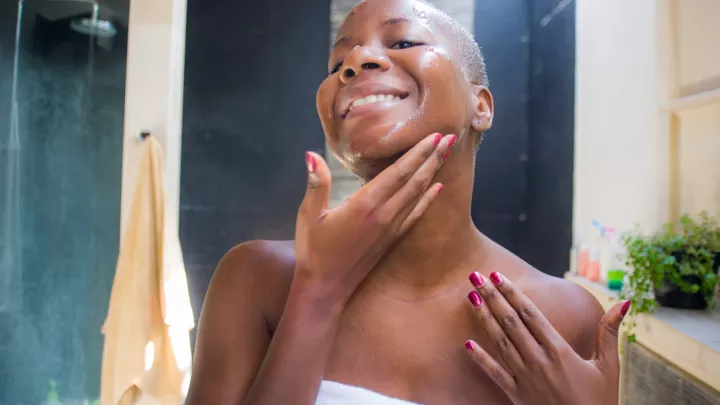Is apple cider vinegar good for your skin and hair? A dermatologist weighs in

Apple cider vinegar, called ACV on social media, is again gaining traction as a wellness elixir. Trending online as a potential tool for better skin and shiny hair, people are purchasing large jugs to make their own DIY beauty products. Similar to the rice water hair treatment trend, it's not always easy to know if so-called natural beauty tricks are the magic solution the influencers claim.
Is apple cider vinegar safe to use on your skin? Is it good for your hair? What if you have a skin condition? Nebraska Medicine dermatologist Ronald Sulewski, MD, weighs in on the topic.
What is apple cider vinegar?
ACV is apple juice that has been fermented several times. Apples are crushed and mixed with yeast or another carbohydrate in the first round. Over time, natural bacteria ferment the juice, converting the alcohol into acetic acid. Once this process is finished, you have ACV in pasteurized and filtered form or raw, unfiltered form. The raw form has cloudy sediment made up of settled bacteria and yeast.
The apple cider vinegar claim
ACV is not a new discovery. People have used ACV for centuries, claiming it helps everything from calming acid reflux and treating a cough to using it as a weight loss aid or beauty product.
Although ACV-infused beauty products are popping up on retail shelves, the use of ACV has yet to be studied extensively. There's simply not much science behind the trend.
"It's not a magic topical and not one I would necessarily recommend,” says Dr. Sulewski. "If you're healthy and would like to try using apple cider vinegar, it may be OK to try it in moderation. For those that have been using it as a weekly regimen and haven't experienced irritation, it doesn't seem to have significant downsides. If you have a skin condition, however, I would not recommend it.”
How to use ACV on hair or skin
ACV is acidic and strong, so it's necessary to dilute the product. Take precautions so you don't strip your hair, irritate your scalp or damage your skin. Start by adding a half tablespoon to every eight ounces of water. Depending on how your hair and skin react, you may choose to increase the strength gradually over time. Don't overdo it, as too much can cause skin problems, hair brassiness, and even skin burns.
ACV advocates claim potential benefits
Benefits for the hair may include:
- Cleansing hair of product and oil buildup
- Restoring shine and protecting color
- Adding volume, relieving itch and dandruff
- Encouraging hair growth
ACV is generally recommended for those with oily and acne-prone skin. It can be applied as a toner, spot treatment or facial cleanser. Benefits for the skin may include:
- Balancing skin pH
- Exfoliation
- Reducing hyperpigmentation
- Stimulating circulation
Steer clear if you have a medical skin condition
If you have a skin condition, reach out for professional help. Often, a medical condition requires a prescription-strength treatment. In these cases, using ACV may cause more harm than good and should be avoided.
Dermatologist's tips for using apple cider vinegar
- Do not use if you have a skin condition. Stop using it if you experience irritation
- Make sure you trust the website you're using as a how-to reference
- ACV may not be as effective in the winter. You may need it less often to counteract the dryness of winter weather
- Keep moisturizing your skin to keep it protected
- ACV may make your skin more sensitive to the sun. Be sure to continue to use sunscreen throughout the winter
- Never use ACV straight. Always dilute it and do a skin patch test before applying it to larger areas







